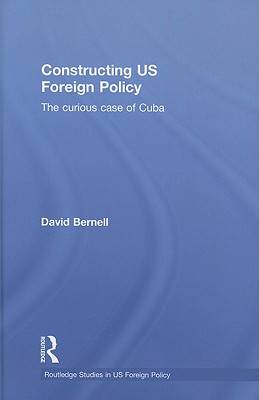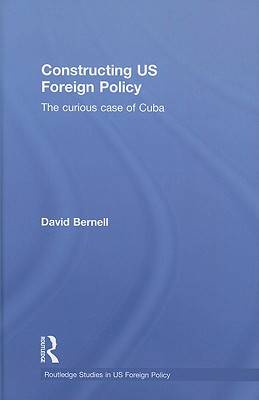
- Afhalen na 1 uur in een winkel met voorraad
- Gratis thuislevering in België
- Ruim aanbod met 7 miljoen producten
- Afhalen na 1 uur in een winkel met voorraad
- Gratis thuislevering in België
- Ruim aanbod met 7 miljoen producten
Omschrijving
This book seeks to address the roots of the hostility that has characterized the United States' relationship with Cuba and has persisted for decades, long after the Cold War. It answers the question of why America's Cold War era policy toward Cuba has not substantially changed, despite a radically changed international environment, going beyond the common explanation that American electoral politics and the Cuban lobby drive US policy toward Cuba.
Bernell argues that US foreign policy towards Cuba cannot be viewed as an objective response to a set of challenges to US interests and principles, and is better understood as a policy that is rooted in and informed by historical understandings of American and Cuban identities, which are themselves historically contingent. Examining a wide range of sources including government documentation and official speeches, this work explores the origins and perpetuation of a policy perspective that emphasizes Cuban difference, illegitimacy, and inferiority juxtaposed against American virtue, legitimacy, and superiority.
This work will be of great interest to all scholars of US foreign policy, International Relations, and Latin American politics.
Specificaties
Betrokkenen
- Auteur(s):
- Uitgeverij:
Inhoud
- Aantal bladzijden:
- 200
- Taal:
- Engels
- Reeks:
Eigenschappen
- Productcode (EAN):
- 9780415780674
- Verschijningsdatum:
- 12/05/2011
- Uitvoering:
- Hardcover
- Formaat:
- Ongenaaid / garenloos gebonden
- Afmetingen:
- 160 mm x 236 mm
- Gewicht:
- 476 g

Alleen bij Standaard Boekhandel
Beoordelingen
We publiceren alleen reviews die voldoen aan de voorwaarden voor reviews. Bekijk onze voorwaarden voor reviews.












